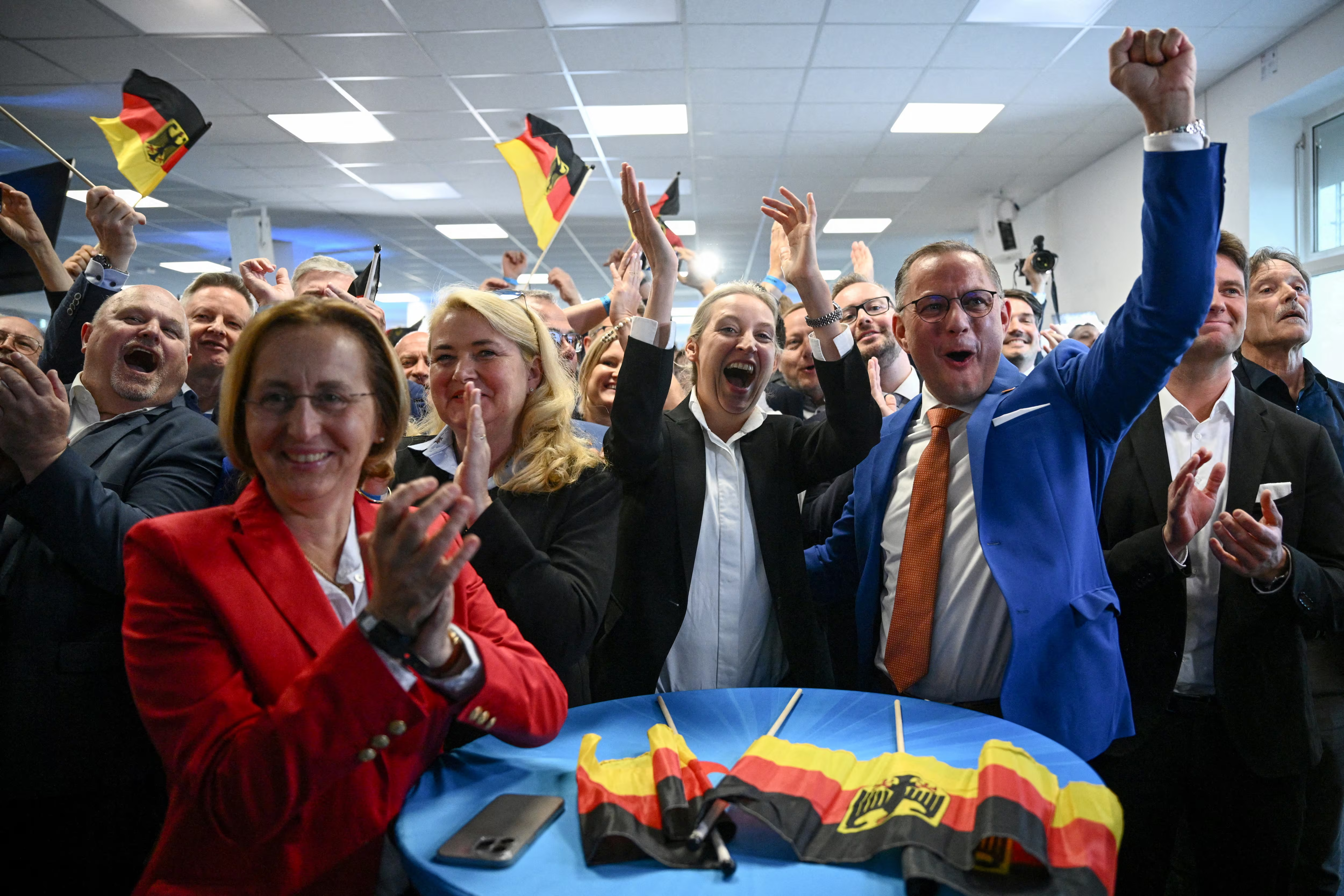Far-right expecting big gains in Germany

Department of Research, Strategic Studies and International Relations 23-09-2024
People in the German state of Brandenburg voted in a regional election on Sunday that the far-right Alternative for Germany, or AfD, Party was predicting it would win.
The election in the state of 2.5 million people followed other recent polls in states in the east of the country, where the far-right outperformed Chancellor Olaf Scholz’s Social Democratic Party, or SPD.
The AfD, which became the first far-right party to win a German state election since the end of World War II when it triumphed in Thuringia on Sept 1, has a strong anti-immigrant focus and has been drawing increasing support as Europe’s migrant crisis has worsened, with German voters seemingly becoming increasingly worried about the large numbers of people entering the country to claim refugee status.
The success of the AfD, which also attracted strong support earlier this month in an election in the state of Saxony, has prompted Scholz to take his government farther to the right, in a bid to win back support from voters.
While the AfD attracted significant backing in Thuringia and Saxony, and was first past the post in Thuringia, it did not win enough seats to have an absolute majority of lawmakers in either state. With all other parties refusing to partner with it in a coalition government, it has, so far, failed to maneuver itself into a position where it can form a government.
Political observers said all eyes will be on the count in the state of Brandenburg after polls close at 6 pm on Sunday, to see if the AfD is able to secure enough votes to be able to form a majority government.
Hans-Christoph Berndt, the AfD’s candidate for the job of Brandenburg state premier, said he was hopeful the party would make additional progress in the election.
“If we continue to receive the same level of support we’ve seen in recent weeks and months, things in Germany will start to improve,” the Reuters news agency quoted him as saying.
Scholz will be among those closely studying the outcome of the vote in Brandenburg because he could face a revolt from within his own party if it continues to lose ground to the far-right. Scholz has said he wants to seek a second term as chancellor in next year’s federal election, but many senior members of his party are known to have reservations about him and his leadership and be wondering whether someone else might stand a better chance of securing victory for the party.
While the AfD were clear favorites several weeks ago to win in Brandenburg, recent polling has shown the SPD to be narrowing the gap, suggesting there could have been a glimmer of hope for Scholz heading into Sunday.





